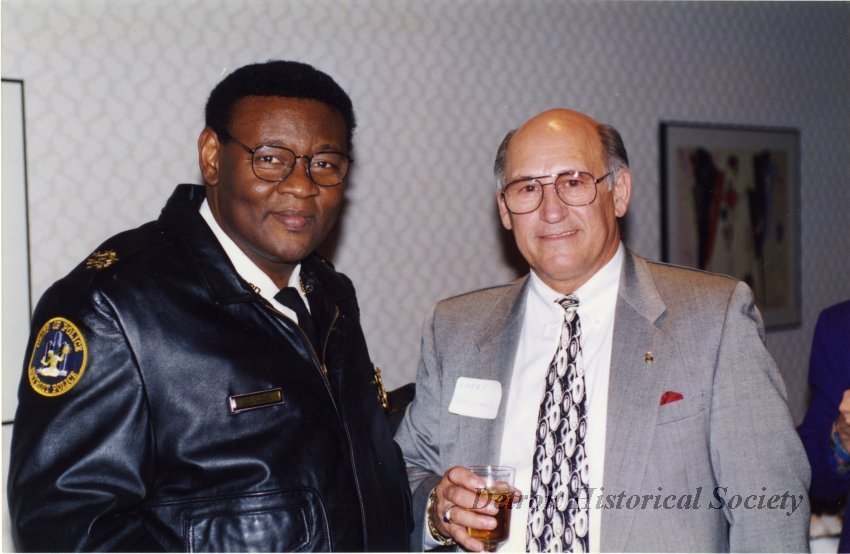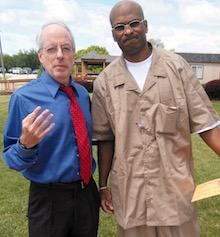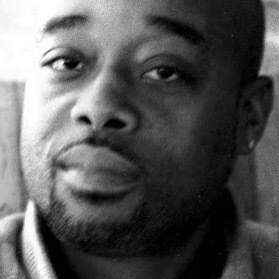Police Violence and Misconduct
Wrongful Convictions and Exonerations
Wrongful convictions are not commonly thought of as violence. Yet it is hard to come up with a better word to describe the processes of forcefully taking an innocent person away from their life and loved ones, putting them into a confined space, and stripping them of nearly every conceivable right and freedom. Moreover, carceral spaces such as jails and prisons are notorious for their high rates of physical, emotional, and sexual abuse. The stories of exonerated individuals are thus an important part of the broader patterns of police violence and carceral violence that this digital exhibit seeks to document.
Although comprehensive data on wrongful convictions is nearly impossible to obtain, the National Registry of Exonerations has made an effort to document as many cases as possible of wrongfully convicted individuals who have since been legally exonerated. This data, despite being incomplete, can provide a glimpse into patterns of wrongful convictions in Detroit. There are eight known cases of individuals wrongfully convicted between 1990 and 1993 who have since been legally exonerated. Those cases are detailed below:
Martiece Curry (Black, Male, 21 at time of arrest) was wrongfully convicted of sexual assault and armed robbery in 1990. Curry became a suspect after the victim of the assault identified him while being transported to a hospital after the incident. On the first day of Curry's trial the prosecution revealed to the defense that semen had been collected from the crime scene, however Curry's lawyer agreed not to pursue additional testing after the prosecution promised not to bring the semen as evidence. Although Curry had two alibi witnesses, he was nevertheless convicted and sentenced to 10-40 years in prison. Curry was granted a new trial in 1994 and prosecutors dropped all charges against him the following year after DNA testing revealed he was not a match for the semen at the crime scene. Curry served four years in prison before his release. In 2019/2020 Curry received over $250,000 from the state of Michigan in compensation for his wrongful incarceration.
Anthony Dyer (Black, Male, 24 at time of arrest) was wrongfully convicted of sexual assault for the rape of a 22-year-old woman in Detroit in 1991. After being picked out of a lineup by the victim Dyer initially maintained his innocence, but ultimately submitted a guilty plea to the court. Sometime between 2009 and 2016, an untested rape kit taken collected from the victim shortly after the crime was finally tested after Wayne County Prosecutor Kym Worthy discovered more than 11,000 similar untested kits in a Detroit warehouse. The testing cleared Dyer and implicated another perpetrator who was charged in 2016 and subsequently pled guilty to the rape. Dyer was not officially exonerated for another three years, when in 2019 a judge agreed to overturn his conviction and the Wayne County prosecutor agreed to drop all charges. Dyer was awarded nearly $500,000 in compensation from the state of Michigan for the ten years in which he was wrongfully incarcerated.
James Dickerson (Black, Male, 39 at time of arrest) was wrongfully convicted of criminal sexual conduct for a rape that occurred in Detroit in 1992. Dickerson was convicted based on witness identification of him as the assailant, despite the fact that a rape kit had been collected but had never been tested. Dickerson was released on bond pending an appeal in 1993, and in 1996 testing was finally conducted to compare his DNA with the DNA from the rape kit. Although the Detroit Crime Lab initially reported that the DNA testing, while not a match, failed to definitively exclude Dickerson as a suspect, an independent review found that the rape kit did indeed clear Dickerson. In 1998 Dickerson's conviction was vacated and later that year the Wayne County Prosecutor moved to dismiss all charges against him. In 2020 Dickerson received $36,302 in compensation for the nearly two years he spent wrongfully incarcerated.
Desmond Ricks (Black, Male, 25 at time of arrest) was wrongfully convicted of second-degree murder for the fatal shooting of 21-year-old Gerry Bennett outside of a restaurant in Detroit in 1992. Ricks had been at the restaurant at the time of the murder and became a suspect after police found his jacket at the scene of the crime and a witness claimed that the perpetrator had dropped thier jacket as they fled the scene. Ricks was convicted, based largely on testimony from a ballistics testing expert who claimed that the bullets that killed the victim had been fired from a gun found at Ricks' home. Between 2010 and 2015, lawyers working to reexamine Ricks' case found a great deal of evidence suggesting that police and prosecutors had worked systematically to falsify ballistics evidence and pressure witnesses in order to convict Ricks. Police had given bullets from the gun found at Ricks' house to a ballistics analyst who had worked the case, and had told the analyst that they had been retrieved from the body. A witness who had testified at trial as to the appearance of the gun used in the crime also claimed to have been pressured by police and prosecutors to change her description to match the gun found at Ricks' home. In 2017 Ricks' conviction was vacated and all charges against him were dismissed. Ricks received over a million dollars from the state of Michigan in compensation for his 25 years spent wrongfully incarcerated.
David Tucker (Black, Male, 28 at time of alleged crime) was wrongfully convicted for the assault of his coworker at a Detroit McDonalds that took place in 1990. Tucker became a suspect after the victim, who initially had told investigators that two other employees had attacked him, changed his story to blame Tucker for the assault. Tucker's lawyer had failed to prepare for trial based on a misunderstanding of the evidence that would be brought against Tucker, and failed to ask the court for additional time to prepare a defense. Tucker was convicted in 1992 and paroled in 1998. In 1999 a court ruling granting Tucker a new trial was upheld and the charges against him were dropped. Tucker spent 6 years wrongfully incarcerated.
Gerry Thomas (Black, Male, 34 at time of conviction) was wrongfully convicted of attempted murder, criminal sexual assault, and armed robbery in 1991. The assault that Thomas was accused of committing took place in late 1987 when a man kidnapped and assaulted a woman at knifepoint while she waited in her car for her six-year-old son to return from a store. Thomas first became a suspect nearly two years after the initial crime when the victim saw him on the street and told police that he was the man who had attacked her. Despite looking substantially different from the original description given by the victim to police, and despite having an alibi witness testify on his behalf in court, Thomas was convicted. Thomas was exonerated as the result of a review by the Wayne County Conviction Integrity Unit, which found that a person of his size could not have entered the victim's vehicle or moved from seat to seat within it as the perpetrator had allegedly done. Thomas was released in early 2020 after spending nearly 30 years incarcerated.
Harold Wells (Black, Male, 24 at time of arrest) was wrongfully convicted of possession of stolen property in connection with a vehicle theft in Detroit in 1990. Wells was arrested because he vaguely matched the description of the driver of a stolen car who had fled on foot after being stopped by police. Two other occupants of the stolen vehicle told police at the time of Wells' arrest that he had not been the driver, however Wells was charged anyways. In 1993 Wells' conviction was overturned after an appeal showed that his original trial lawyer had failed to read the police reports that noted the existence of the two witnesses who claimed Wells had not been the driver of the stolen vehicle. That same year all charges against Wells were dropped. Wells received over $50,000 in compensation for the year he spent wrongfully incarcerated.
Kevin Lackey (Black, Male, 18 at time of arrest) was wrongfully convicted of criminal sexual conduct and breaking and entering, among other charges, all connected with the sexual assault of an eleven-year-old girl in Detroit in 1992. Lackey first became a suspect in the immediate aftermath of the crime, when a police search dog "alerted" at his house, indicating that the scent from the scene of the crime matched the scent of Lackey's house. Lackey was convicted despite the fact that the victim did not identify him in a police lineup. Lackey was released from prison in 2014. Between 2011 and 2018, lawyers working with Lackey found serious issues with the procedure used with the police dog that had "alerted" at Lackey's house. In 2019, following a review by the Wayne County Prosecutor's Conviction Integrity Unit, Lackey's conviction was overturned and all charges against him were dropped. Lackey received over a million dollars from the state of Michigan as compensation for his 20 years spent wrongfully incarcerated.






